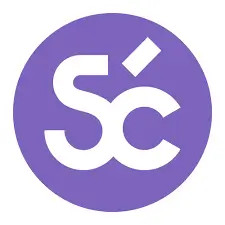In our second Smartcatters interview, we talk to Magnette Coetzer, who came back to the translation profession after a long career in TV production. Her example shows that there is no such thing as "too late" for becoming a translator, and that existing specialist experience is not a dead weight, but something you can leverage in your work.
Hi Magnette, could you tell us a few words about yourself?
“Every morning, I make a cup and sit down to work.”
Hi Vova. I am a South African-German. I spent the last five years in Germany, and am currently in Cape Town, but will be living on two continents. I am married to a North African, and we both love travelling. Since we wanted the freedom to live and work outside one country, we have both been exploring different career opportunities that could afford us that freedom. Until June last year I was a full-time TV Producer.
Wow, that’s interesting. What kind of projects did you produce?
Things like documentaries, talk shows, lifestyle shows, and commercial work. I still produce some projects, but translation work takes up around 80% of my time now. I started my media career in my late twenties, and really loved working in the exciting and challenging world of broadcast media.
And what did you do before that?
I was directly involved in the language and communication field, and was actually employed as a translator about twenty years ago for two years. (How time flies!) I also ran a small company for about 5 years, providing communication and language training services. My training career had been kick-started in Munich, where I spent a year after finishing the university in Cape Town and was lucky to be offered a job at a private language school in Munich. I taught German and English, and gave presentations to potential clients. The method was based on role-play. With a drama degree and a multi-lingual background, it was the perfect fit!
A language learning theater? Sounds intriguing! So, you are an “experienced language lover”?
Yes, language has always interested me. I have always understood that language goes beyond the spoken or written word. It is very much about tone and gesture, about subtext and cultural attitudes, about how we use communication in all its forms. I am fascinated by these aspects of language. Translation work offers the opportunity to stretch and flex many of these muscles.
So how did you actually went to become a translator?
While I was in Munich, I had already considered this career because of my multi-lingual background. I had actually applied to a translation school, and was accepted, but decided to return to my home country after my international year.
When I returned, I was offered full-time employment as a legal translator in Cape Town. I worked for a legal firm for over two years as a translator on an ongoing international case. At that point I needed more creative expression, and since more stimulating translation jobs were hard to come by in Cape Town at that time, I decided to relocate to Johannesburg for expanded opportunities.
I now translate primarily from German to English, but recently had my first Afrikaans to English translation project.
What’s the best part of being a translator?
There are a few “best parts”. The most amazing part is that I do not have a boss breathing down my neck and the high stress levels of working in media production. Second is the fact that I can work from anywhere, and am free to travel. Third, is the satisfaction and sense of accomplishment after completing a challenging job.
And the worst part(s)?
The worst parts for me are: “Getting your foot in the door” again, living with the insecurity of not always having enough work. Secondly, monotonous and verbose projects with dry subject matter. Thankfully these are usually well-paid.
And what are your favorite kinds of projects?
Creative copy-writing / translation jobs, as they require my logical, creative, linguistic and research skills. I would also love to translate a work of fiction.
Would you call yourself a tech-savvy translator?
Well, not really, not yet. (I’m working on it :) When I started out around the middle of last year, I came at it from a different career path. I applied to various translation platforms and was accepted by a few quite quickly. I had never worked with CAT tools before, so this was new to me. I found some of the platforms had very complicated software and processes in general, and I was not ready for these. I was pretty confused and disoriented.
I was navigating a practically new career path on my own, going into the translation field again twenty years later, after the digital revolution. I was trying to dissect how it all worked whilst at the same time getting my head-space back into translation mode. Thankfully, as a TV Producer I am pretty tech savvy in terms of post-production software, so I can adapt to tech pretty quickly.
I translated for five months with no CAT tools at all, but gained very valuable experience and good client ratings. I also earned a good enough living to make the career transition. So, translation muscles flexed and confidence gained, I started to explore the world of CAT tools.
And that’s when you found Smartcat?
Right.
So what can you say about it?
It makes me 35–45% more productive; I save time in terms of actual translation work, but the biggest bonus for me is how Smartcat mirrors the original format, no matter how complicated, with no extra effort! It’s incredibly intuitive and user-friendly, and the webinars and support material are really helpful. I feel part of a community, with real support.
Speaking of community, what advice would you give to aspiring translators?
Firstly, speaking several languages is not sufficient. You need to be skilled at writing, have the capacity to focus on texts of all kinds, be a keen intellectual problem-solver, and be constantly and actively improving your linguistic and writing skills. You also need to be good at networking and marketing to win clients.
Anybody, whether formally educated or not, who is willing to put in the time and effort necessary, can become a good translator. I had good training as a TV producer and language trainer. However, many people have made the transition from various different career paths. The best pre-requisite is always one’s love for one’s work.
My advice: If you feel you have what it takes, just go for it. Seek advice from others with more experience, be willing to make mistakes, and learn from them.
Do you want to be a featured Smartcatter? Just introduce yourself on our forum, and let's see where it gets us!
Subscribe to our newsletter


